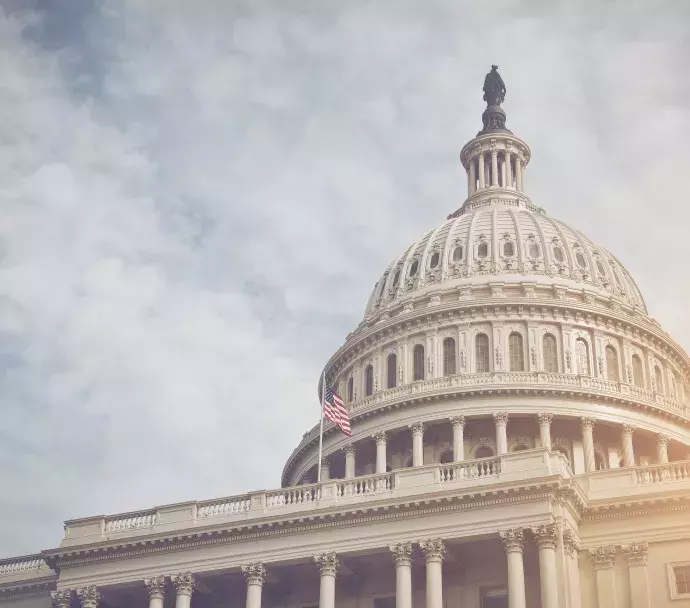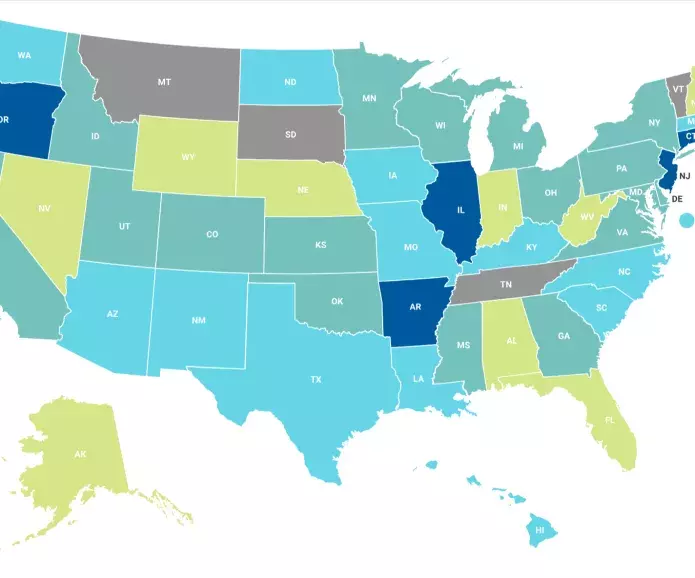
Our 2025 Legislative Priorities
Several important pieces of legislation have been introduced in the current Congress, and we are actively working to enact these bills that would affect kidney patients and their access to life-sustaining health care.

The Living Donor Protection Act of 2025 (S.1552)
The Living Donor Protection Act would remove many barriers to living organ donation by ensuring that living organ donors have Family Medical Leave Act (FMLA) protections and protection from discrimination by insurance carriers.
This bipartisan bill would codify a 2018 U.S. Department of Labor letter which stated that organ donation is protected under FMLA so that donors are able to take time off of work to donate their kidney and recover from surgery without fear of losing their job. It also prohibits insurers from:
- Declining or limiting coverage of a person under any life insurance, disability insurance or long-term care insurance policy due to the person's living donor status;
- Preventing a person from donating all or part of an organ as a condition of receiving a life insurance, disability insurance, or long-term care insurance policy; and
- Taking a person's status as a living organ donor into consideration when determining the premium amount.
Finally, the bill requires the Department of Health and Human Services to update its website, brochures, and other media regarding live donation and access to insurance for living donors. Check out the American Kidney Fund's State of the States: Living Donor Protection Report Card to see how well laws in your state encourage living organ donation and reduce barriers for living organ donors. If passed, this federal legislation would ensure that every state has a basic level of protection, so that a person's state of residence does not make it more difficult to be a living donor.
Click here to ask your senators to cosponsor this important piece of legislation.
New Era of Preventing End-Stage Kidney Disease Act of 2025 (H.R. 1518)
There are about 150 rare kidney diseases, and no FDA-approved treatments for most of them. Many rare kidney disease patients struggle to receive an accurate diagnosis and expert treatment. These treatment and diagnostic barriers, coupled with the lack of rare kidney disease awareness and education, often cause a delay in diagnosis. This delay can result in a rapid decline in kidney function and, ultimately, kidney failure when the only options are dialysis, transplant, or death.
Each day in the United States, on average, 360 people begin dialysis, and 13 die waiting for a kidney transplant. In 2022, Medicare spent a total of $45 billion on people with kidney failure. Additionally, communities of color are disproportionately affected by rare kidney diseases and a lack of adequate treatment options due to existing health disparities — Black Americans are 4 times more likely to develop kidney failure than white Americans.
To address rare kidney disease in the United States, we need more research, public awareness, shorter times to diagnosis, access to genetic testing and counseling, additional treatments, and an understanding of why rates of kidney disease are higher in underserved communities. These steps would help assuage the burden of rare kidney disease on individuals and help defray the costs of dialysis and kidney care in the Medicare program.
The bill aims to improve the understanding and timely and accurate diagnosis of rare kidney diseases. Please email your elected officials today to request they become an original cosponsor of this important bill.
Click here to contact your United States Representative and ask they cosponsor this important legislation.
Restore Protections for Dialysis Patients Act (H.R. 2199/S. 1173)
For over 40 years, end-stage renal disease (ESRD) patients on dialysis have had the option to retain their employer group health plan or COBRA coverage for up to 30 months before moving to Medicare as their primary insurance as part of the Medicare Secondary Payer (MSP) law. Specifically, the MSP provisions protect ESRD patients from discriminatory practices by insurers that would discourage their enrollment in a private plan.
However, in a recent U.S. Supreme Court case, the MSP law was interpreted in a manner that would allow plans to get around those protections for ESRD patients and undermine Congress's intent in adopting them.
H.R 2199/S. 1173, the Restore Protections for Dialysis Patients Act, is bipartisan legislation that would clarify that insurance companies comply with the Medicare Secondary Payer law by specifically stating that a health plan cannot discriminate against dialysis patients by providing less dialysis services compared to services for other chronic illnesses. It will ensure that dialysis patients have access to the care they need on their employer sponsored insurance for 30 months before moving to Medicare as their primary insurance.

AKF allowed me to focus on my health and prioritize my new kidney. I didn't have to worry about how I was going to pay for my insurance. They had my back when I needed it.
— Alysia Yamasaki

Where Americans live can affect their ability to give the gift of life
AKF's State of the States: 2025 Living Donor Protection Report Card evaluates each state and the District of Columbia on how well their existing laws encourage living organ donation and reduce barriers for living donors.

